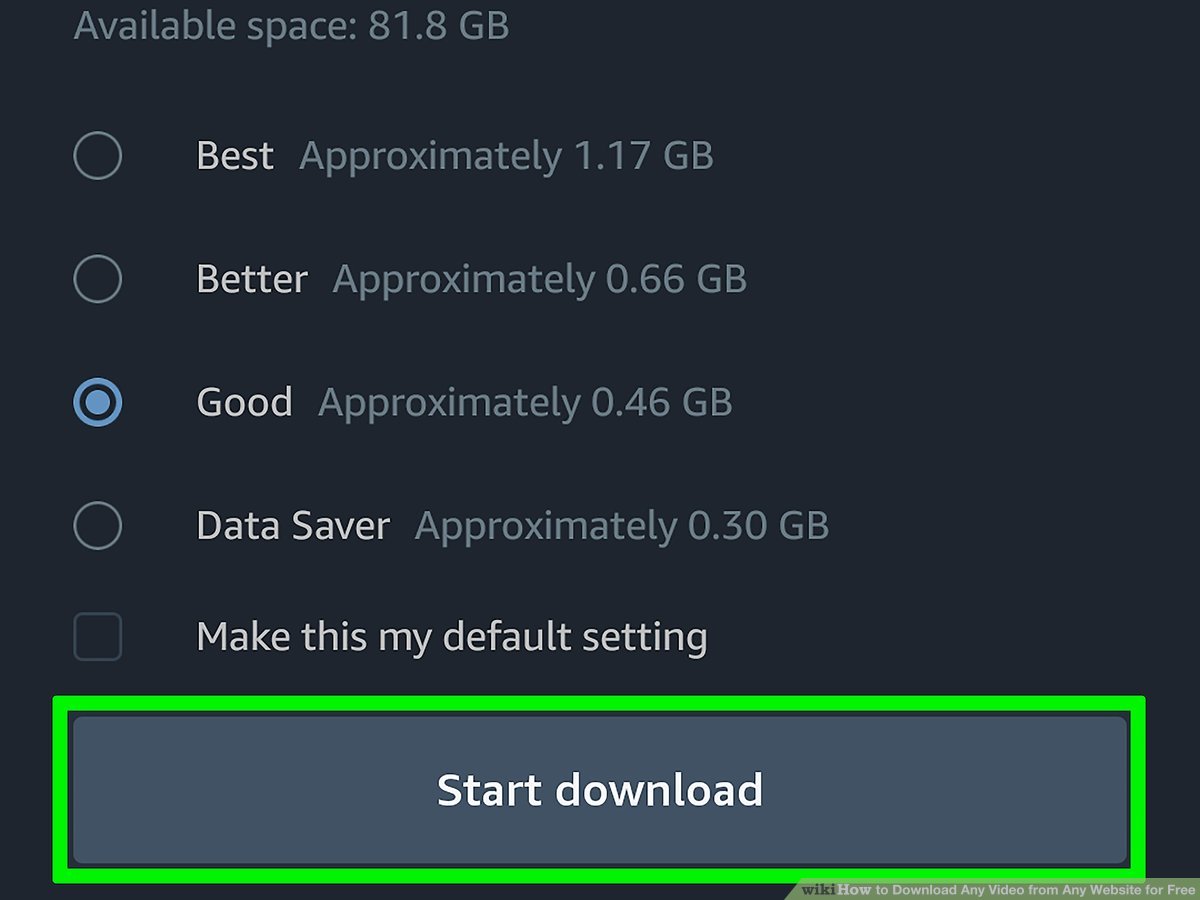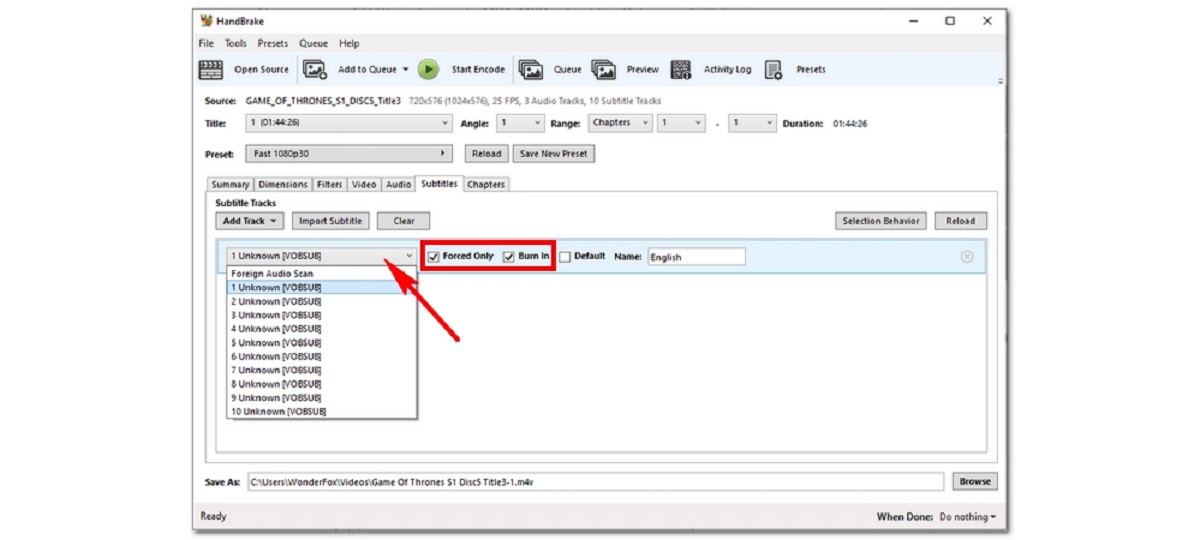Introduction
In the digital age, web browsers and extensions have become integral tools for accessing and managing online content. Among the myriad of file formats encountered during web browsing, MKV and MP4 are commonly utilized for video playback. However, issues may arise when using Internet Download Manager (IDM) to download videos in Firefox, as IDM may save the video in the MKV format instead of the preferred MP4 format. This can be inconvenient, as MP4 is a more widely supported format across various devices and platforms.
Understanding the nuances of these file formats and the intricacies of IDM's behavior in Firefox can empower users to overcome such challenges. By delving into the differences between MKV and MP4, as well as exploring the reasons behind IDM's choice of format, individuals can gain valuable insights into resolving this issue. This article aims to shed light on these aspects and provide practical solutions for converting MKV to MP4 when IDM downloads videos in Firefox.
As we embark on this journey, it's important to recognize the significance of addressing format conversion issues, as they directly impact the user experience and the seamless enjoyment of multimedia content. By equipping ourselves with the knowledge and tools to navigate these technical hurdles, we can enhance our online browsing and video viewing experiences. Let's delve into the intricacies of MKV and MP4, unravel the mysteries behind IDM's format selection, and discover effective methods for resolving this common dilemma.
Understanding the difference between MKV and MP4
MKV (Matroska Multimedia Container) and MP4 (MPEG-4 Part 14) are both popular video container formats, each with its own unique characteristics and functionalities. Understanding the disparities between these formats is crucial for effectively managing and playing back multimedia content.
MKV (Matroska Multimedia Container)
MKV is an open and free container format that can encapsulate an array of audio, video, and subtitle tracks into a single file. This versatility makes it a preferred choice for storing high-definition video content with multiple audio and subtitle options. MKV files are known for their flexibility, as they can support various codecs and multimedia elements, making them ideal for preserving the original quality of video content.
One of the key advantages of MKV is its ability to store multiple audio and subtitle tracks within the same file, allowing users to switch between different language options or audio formats seamlessly. Additionally, MKV files can accommodate advanced features such as chapter markers, metadata, and menu systems, enhancing the overall viewing experience.
MP4 (MPEG-4 Part 14)
MP4 is a widely recognized digital multimedia container format that is commonly used for storing video and audio data. It is renowned for its compatibility across a broad range of devices and platforms, making it a popular choice for distributing and streaming video content. MP4 files are known for their efficient compression and high-quality playback, making them suitable for online streaming and digital distribution.
One of the notable features of MP4 is its support for various codecs, including H.264 and AAC, which are widely compatible with different media players and devices. MP4 files also offer the advantage of seamless integration with online platforms and streaming services, making them a preferred format for sharing and consuming video content on the internet.
Key Differences
While both MKV and MP4 serve as versatile containers for multimedia content, they exhibit distinct characteristics that set them apart. MKV excels in preserving the original quality of video content and accommodating multiple audio and subtitle tracks, making it ideal for archival purposes and diverse language options. On the other hand, MP4 prioritizes compatibility and efficient compression, catering to the demands of online streaming and digital distribution.
Understanding the nuances of these formats is essential for navigating the intricacies of video playback and file management. As we delve deeper into the realm of format conversion and video downloading, this knowledge will prove invaluable in addressing the challenges associated with IDM downloading videos in Firefox.
Why IDM may download videos in MKV format
Internet Download Manager (IDM) is a popular tool for managing and accelerating the download of various files, including videos, from the internet. When using IDM to download videos in Firefox, it may occasionally save the video in the MKV (Matroska Multimedia Container) format instead of the more commonly preferred MP4 (MPEG-4 Part 14) format. This unexpected behavior can be attributed to several factors, each contributing to the underlying reasons for IDM's choice of format.
-
Server-Side Configuration: The format in which a video is available for download can be influenced by the server-side configuration of the website hosting the video. Some websites may offer videos in the MKV format, and when IDM detects the available formats, it may prioritize the MKV version for download. This can occur when the server provides the MKV format as the default option, leading IDM to fetch the video in that particular format.
-
Video Codec Compatibility: IDM's selection of the MKV format may also be influenced by the video codecs used by the source. If the video is encoded using a codec that is more compatible with the MKV format, IDM may opt to download the video in MKV to ensure seamless playback and compatibility with the source's encoding settings. This decision is driven by IDM's aim to provide users with a version of the video that aligns with the original encoding parameters.
-
Browser and Extension Interaction: The interaction between Firefox, IDM, and the video streaming website can also impact the format of the downloaded video. Compatibility issues or miscommunication between the browser, IDM, and the website's video player may lead to IDM defaulting to the MKV format when initiating the download process. This interplay of technologies can influence IDM's decision-making process when fetching videos from Firefox.
-
User-Agent Identification: Websites often use user-agent identification to determine the type of device or software accessing their content. In some cases, IDM's user-agent identification may prompt the server to offer the MKV format as the preferred option for download. This can occur when the server perceives IDM as the ideal candidate for receiving the MKV version of the video, leading to its selection over other available formats.
Understanding these potential reasons for IDM downloading videos in the MKV format provides valuable insights into the complexities of video retrieval and format selection. By unraveling the underlying factors influencing IDM's behavior, users can gain a deeper understanding of the dynamics at play when downloading videos in Firefox. This knowledge serves as a foundation for exploring effective solutions to convert MKV to MP4 when encountering this format discrepancy.
How to fix format MKV to MP4 when IDM downloads video in Firefox
When encountering the scenario where IDM downloads a video in the MKV format instead of MP4 in Firefox, users can employ various methods to convert the file to the desired MP4 format. These solutions encompass both manual conversion techniques and the utilization of specialized software designed for format conversion. By following these steps, users can seamlessly transform MKV files into MP4, ensuring compatibility and optimal playback across a wide range of devices and media players.
Manual Conversion Using Video Editing Software
One approach to converting MKV to MP4 involves utilizing video editing software with built-in format conversion capabilities. Popular video editing tools such as Adobe Premiere Pro, Final Cut Pro, or even free software like HandBrake offer the functionality to import MKV files and export them in the MP4 format. Users can leverage the export or conversion features within these applications to manually transcode the video, ensuring that it is saved in the desired MP4 format.
Online Format Conversion Services
Numerous online platforms provide convenient and user-friendly tools for converting video files from one format to another. Websites such as OnlineConvert, CloudConvert, and Convertio offer dedicated video conversion services that support the transformation of MKV files into MP4. Users can simply upload the MKV file to the chosen platform, select MP4 as the desired output format, and initiate the conversion process. These online services streamline the conversion task and deliver the converted MP4 file for download, eliminating the need for complex software installations.
Dedicated Format Conversion Software
Specialized software applications designed for video format conversion, such as Freemake Video Converter, Any Video Converter, and Wondershare UniConverter, offer comprehensive solutions for converting MKV to MP4. These dedicated tools feature intuitive interfaces and a range of customization options, allowing users to fine-tune the conversion settings to suit their preferences. By leveraging these software solutions, users can efficiently convert MKV files downloaded by IDM in Firefox to the universally compatible MP4 format.
Browser Extensions for Format Conversion
Certain browser extensions, such as video downloaders with format conversion capabilities, can facilitate the seamless conversion of downloaded MKV files to MP4 directly within the browser environment. Extensions like Video DownloadHelper for Firefox and Chrome offer the functionality to convert video files to different formats, including MP4, empowering users to address format discrepancies resulting from IDM downloads. By integrating these extensions into the browser, users can streamline the conversion process and ensure that downloaded videos are saved in the preferred MP4 format.
By employing these methods, users can effectively address the issue of IDM downloading videos in the MKV format in Firefox, enabling them to convert the files to MP4 for enhanced compatibility and seamless playback. These versatile solutions cater to diverse user preferences and technical proficiency, offering accessible pathways to resolve format discrepancies and optimize the video viewing experience.
Conclusion
In conclusion, the interplay between web browsers, video download managers, and file formats presents a dynamic landscape that influences the way we access and consume multimedia content. The complexities surrounding IDM's choice of the MKV format when downloading videos in Firefox underscore the importance of understanding the intricacies of format conversion and video playback. By delving into the differences between MKV and MP4, unraveling the reasons behind IDM's format selection, and exploring effective methods for resolving format discrepancies, users can navigate these technical challenges with confidence and proficiency.
The distinct characteristics of MKV and MP4 shed light on their respective strengths and functionalities, highlighting the diverse capabilities of these video container formats. While MKV excels in preserving high-quality video content with multiple audio and subtitle tracks, MP4 prioritizes compatibility and efficient compression, catering to the demands of online streaming and digital distribution. This understanding serves as a foundation for addressing format conversion issues and optimizing the playback experience across various devices and platforms.
The underlying reasons for IDM downloading videos in the MKV format, including server-side configurations, video codec compatibility, browser and extension interactions, and user-agent identification, provide valuable insights into the complexities of video retrieval and format selection. By recognizing these influencing factors, users can gain a deeper understanding of IDM's behavior and the technical nuances at play when downloading videos in Firefox.
The diverse methods for converting MKV to MP4, ranging from manual conversion using video editing software to the utilization of online format conversion services, dedicated format conversion software, and browser extensions, offer versatile solutions for addressing format discrepancies resulting from IDM downloads. These methods empower users to seamlessly transform MKV files into the universally compatible MP4 format, ensuring optimal playback and compatibility across a wide range of devices and media players.
As we navigate the ever-evolving landscape of web browsing and multimedia consumption, equipping ourselves with the knowledge and tools to overcome format conversion challenges is essential. By embracing the insights and solutions presented in this article, users can enhance their video viewing experiences, streamline the management of downloaded content, and embrace the seamless compatibility offered by the MP4 format. Ultimately, by harnessing the power of format conversion and leveraging the capabilities of web browsers and extensions, users can embark on a journey of enriched multimedia exploration and seamless playback, transcending the boundaries of file formats and technical intricacies.

























